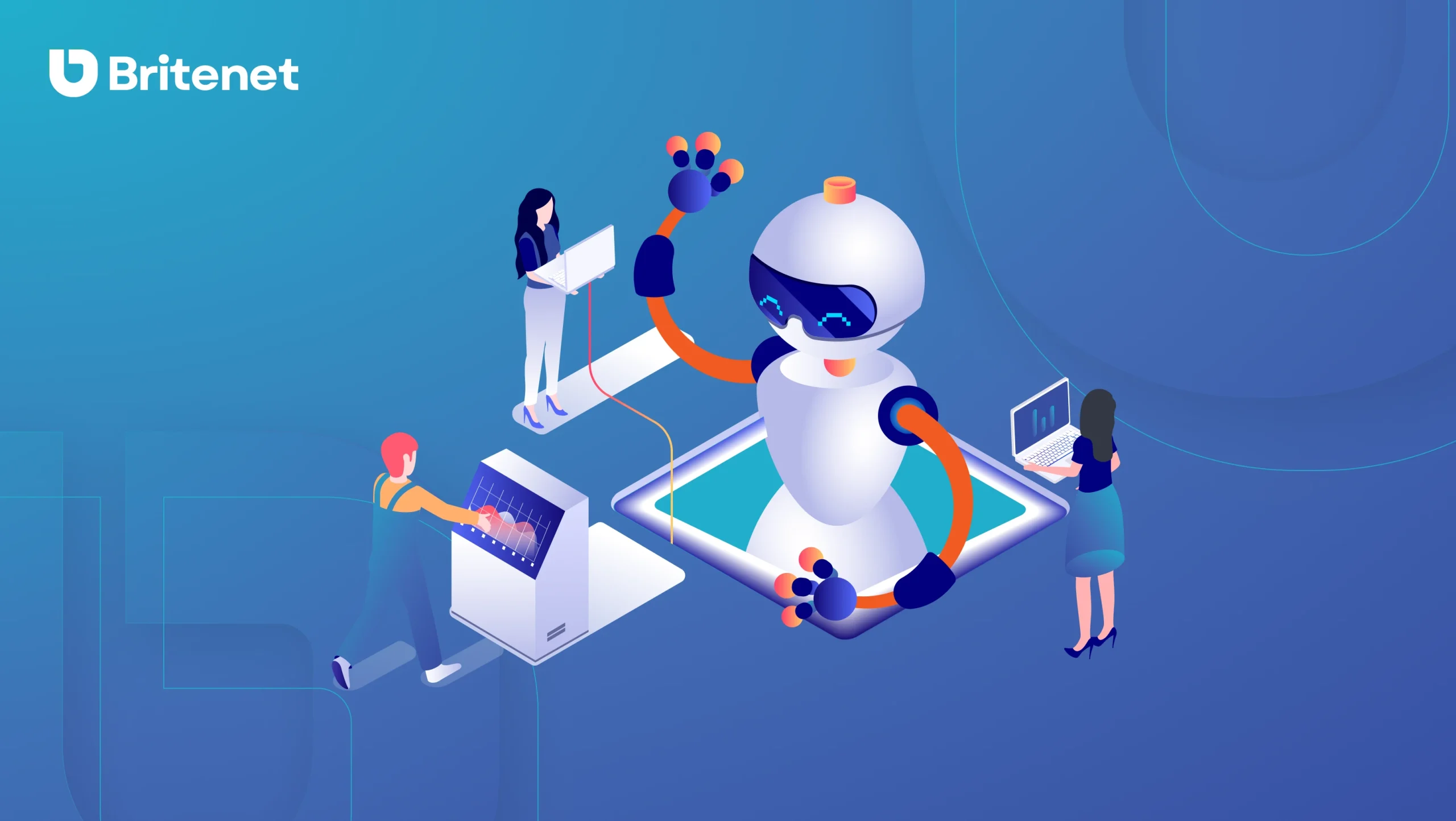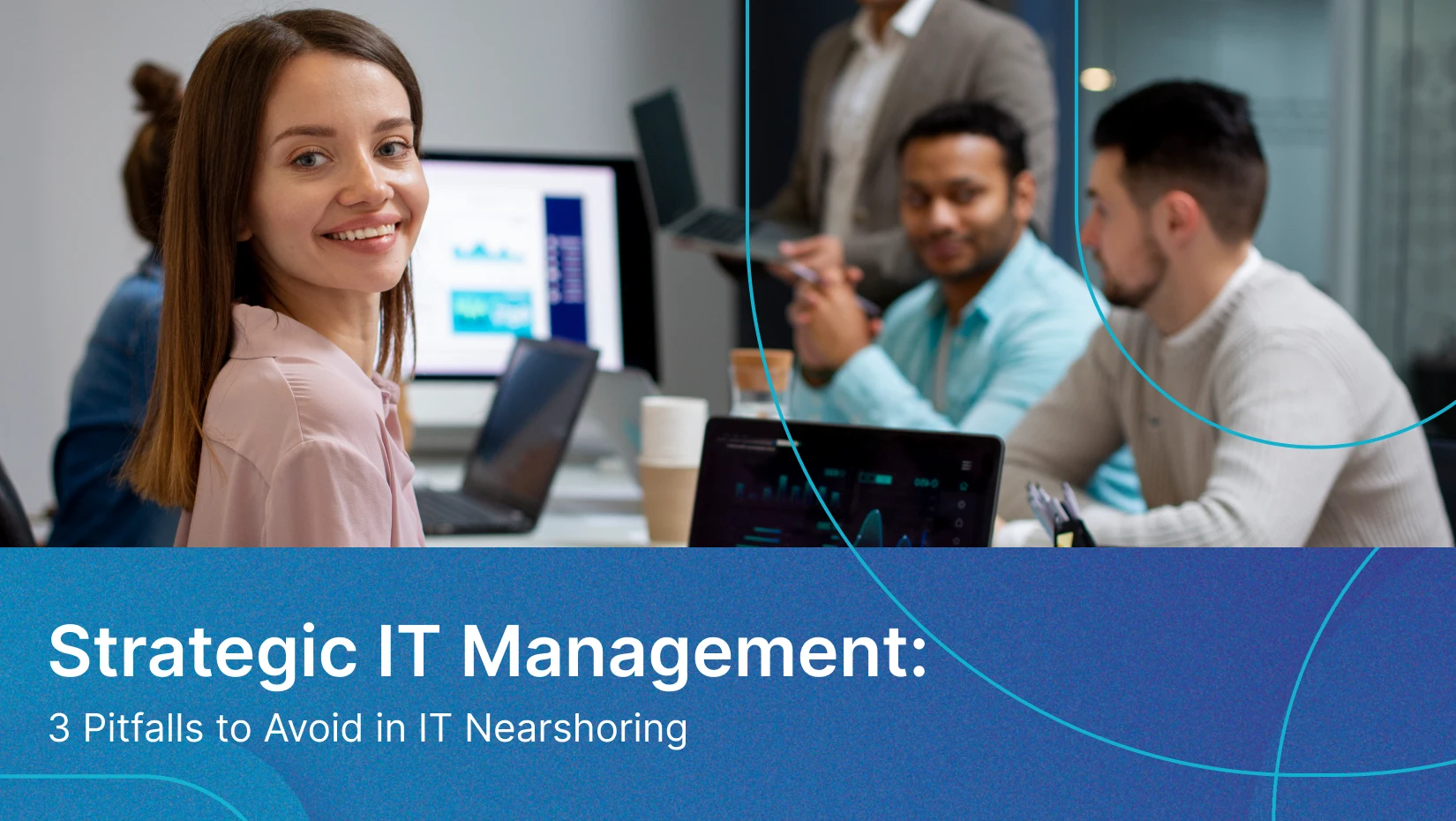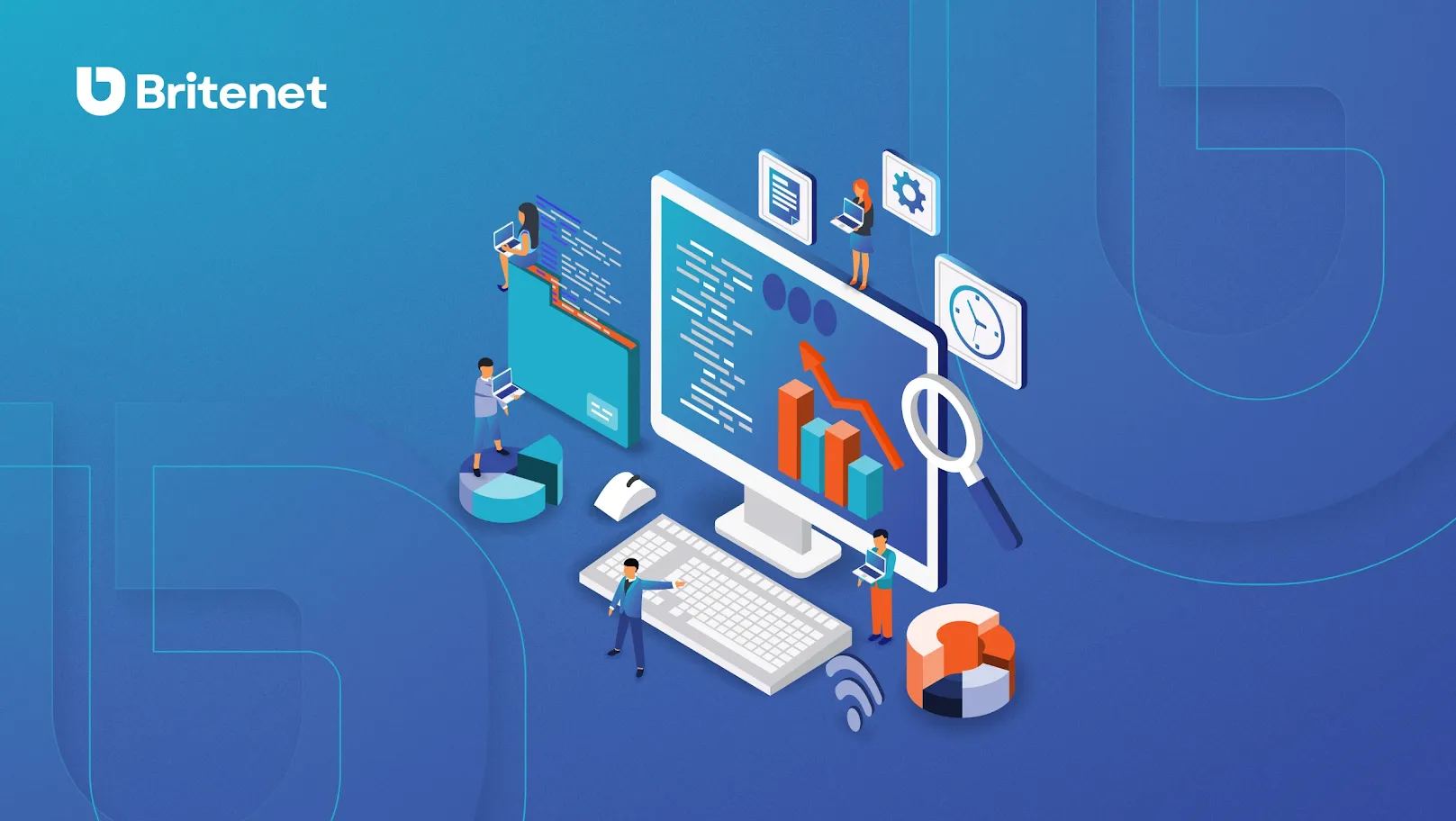Artificial intelligence has become one of the main pillars of modern business strategies – supporting decision-making, automating processes, and allowing for immediate adaptation to market changes. As a result, more and more organizations are facing a serious challenge – how to build a team that can not only implement AI tools, but also develop and scale them? Is it better to recruit experts from the market or to focus on developing internal competencies?
Key takeaways from this article
- Even the most advanced AI tools will not deliver maximum Return on Investment if you do not have a team of experts who can leverage the full potential of AI.
- Before deciding to invest in AI recruitment and implementation, it is necessary to assess the company's readiness in key areas such as infrastructure, culture, and talent.
- Strengthening your internal team with experienced AI specialists with the help of a trusted partner is the easiest way to quickly improve your skills, introduce best practices, and avoid common mistakes in the early stages of the project.
AI cannot function without experts – people are behind its success.
What good is the most expensive Formula 1 car if our driver lacks experience and our mechanics are too slow at changing tires? Even the best and most advanced AI tools will be nothing more than shiny but useless gadgets if we don't have a team that can fully utilize their power and potential.
An effective AI team is an interdisciplinary group of experts – from data analysts and machine learning engineers to system architects and technology leaders – who can translate the potential of Artificial Intelligence into measurable business results.
Companies that invest not only in tools but also in the AI skills of their teams will gain the greatest advantage. In banking, such teams automate AML processes and improve credit risk assessment; in logistics, they optimize delivery routes; and in retail, they analyze customer behavior in real time. Organizations that believe unconditionally in the miraculous results offered by new technologies – without the support of experts – will not be satisfied when calculating their Return on Investment.
Choosing the right model for building an effective AI team is a decision that affects, among other things, the pace and effectiveness of project implementation. However, there is no single right strategy that will work for every company – the right approach depends on the maturity of the organization, its goals, needs, and available resources. Only after conducting a comprehensive assessment of AI potential can companies choose one of three options: recruitment from the market, development of an internal team, or a hybrid model. Each of these approaches offers unique benefits, but at the same time requires a different way of operating and poses certain challenges for executives.
Recruitment of AI specialists – quick project start-up and real business advantage
Hiring experienced specialists is the easiest way to quickly strengthen your organization's technological capabilities and move on to implementing AI projects. Experts selected by a trusted business partner will bring a fresh perspective, knowledge of the latest tools, and experience gained in other projects – allowing you to avoid many serious mistakes in the early stages of implementation.
However, this solution comes with several challenges – the need to integrate new team members into the existing organizational culture, ensure consistency of processes and work standards, and transfer knowledge. These problems can be minimized by starting cooperation with the right business partner who, in addition to providing specialists tailored to the needs of a specific project, also takes responsibility for the implementation of the project, ensuring full control over its progress and results.
The model created by Britenet is based on cooperation with a dedicated team consisting of a Customer Success Manager, Site Manager, and HR Business Partner. The team takes on independent project management – from verifying IT resources and development needs, through monitoring progress and taking care of the technical aspects of project implementation, to monitoring the commitment and satisfaction of team members in order to keep the turnover rate as low as possible.
Advantages
- Quick access to the knowledge and experience of specialists, enabling immediate reinforcement of AI projects.
- The ability to implement proven practices and methodologies used in other organizations and projects.
- Bringing a fresh perspective to strategies and processes, which can inspire cultural and technological change within the organization.
Challenges
- Risk of knowledge loss in the event of turnover or short-term cooperation.
- Difficulties in integrating newly hired specialists into existing structures and organizational culture.
Internal team – is it worth building your own strength in AI?
Developing AI competencies within an existing IT team is a strategy that requires time, planning, and consistent investment in employees. Internal training increases team engagement and loyalty, and with properly planned programs – such as internal AI academies or certified courses – it allows you to build lasting competencies within the organization. Companies that focus on employee development gain a technological advantage, foster a culture of innovation, and strengthen their ability to undergo effective digital transformation.
How to effectively develop AI competencies internally:
- Create internal AI academies or collaborate with universities to tailor programs to your organization's needs.
- Leverage certified courses and programs that cover both machine learning and AI ethics.
- Design development paths tailored to different roles, from data analysts to AI project leaders.
- Monitor progress and regularly update training programs to maintain their effectiveness and relevance to changing business needs.
Challenges
- The training process requires considerable time, regularity, and consistent investment.
- The need to adapt programs to the different levels of advancement of participants.
- Maintaining employee motivation throughout the entire period of competence development.
Hybrid strategy – balancing speed and sustainability
Organizations may also opt for a hybrid model of AI team building, which involves simultaneously developing internal competencies and strengthening teams with external experts. This approach allows for a quick start to the project thanks to the support of new specialists, while strengthening the culture of data and innovation within the organization. External experts – selected for the project according to its requirements – can act as mentors who will pass on knowledge and guidance to internal and developing teams, ensuring the possibility of sustainable knowledge transfer and competence development within the organization.
Make sure you get a return on your investment – check if your company is ready for AI
Before you decide to hire experts and implement advanced AI solutions, you should answer a key question: Is your company ready to implement Artificial Intelligence?
An important step is to assess your organization's readiness – to check whether your company has the right foundations for developing and utilizing AI. Britenet's organizational readiness assessment consists of six key areas: organizational strategy, data infrastructure, technical capabilities, talent resources, cultural readiness, and ethical governance. A careful analysis will identify gaps, problems, and barriers, as well as allow you to predict and avoid costly failures that could arise in the future. It also provides an opportunity to create an action plan for data organization, system integration, and IT team competency development.
The assessment provides answers to important questions such as:
- Is the data up-to-date, complete, and well categorized?
- Do the systems allow for seamless integration?
- Does the internal team have the skills to work with AI?
Conclusions and recommendations – the success of an AI strategy begins with the team
Building an AI team is a strategic investment in people who, thanks to their combination of technical knowledge and understanding of business objectives, will be able to maximize the potential of artificial intelligence.
The way in which organizations develop their AI competencies – through recruitment, training, or a hybrid model – should be clearly based on their chosen strategy, available resources, and level of digital maturity. Recruiting experts from the market allows you to quickly gain know-how and start projects, while developing internal teams builds a culture of learning and lasting competencies, although it requires time and consistency. The hybrid model, on the other hand, combines speed of action with long-term development of team potential. In each case, a team of experts will be the driving force behind AI performance.
Recommendations for leaders planning to develop AI competencies:
- Start by assessing your company's maturity – determine what stage of development your organization is at before investing in recruitment, training, and new technologies.
- Build interdisciplinary teams – combine technological, analytical, and business competencies so that AI implementations and projects translate into real business results.
- Think strategically and act in stages – create a long-term AI competency development plan that takes into account both current needs and the long-term transformation of the company.
- Focus on partnership – work with an experienced provider who will not only supply specialists, but also help you build a team and processes ready for AI scaling.
- Combine knowledge with organizational culture – technological development should go hand in hand with building an environment open to experimentation and continuous learning.
What next? What should be the first step?
With the aim of supporting your company in the process of digital development, we have developed an AI Readiness Assessment. After completing it, you will receive a personalized action plan identifying your company's strengths and opportunities for development in areas critical to the successful implementation of AI, such as organization, infrastructure, technology, team, culture, and ethics.



